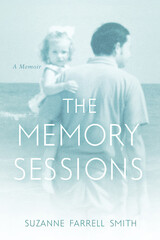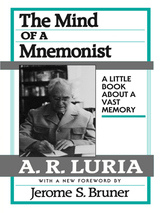
Cinco Becknell is the story of a homeless man with no memory. Locked in the emptiness of his mind is a secret, a past, which will either keep him alive or get him killed.
As Cinco staggers through a dangerous journey of rediscovery, he is hunted by psychopaths who want to kill him, and he has no idea why; he is shadowed by a woman who may keep him alive—or not; and he is finally helped by another woman who can bring back to him the light he looks for—if he can stay alive. But he is running out of time, and people around him are dying, always violently.
Gradually, he begins to understand the true, brutal, nature of himself and of the darkness of his past. But it is a past, and a present, that he may never fully understand.
This novel, based on generations of violent, local family history, is set in the underbelly of the pseudo-glitzy streets of Santa Fe, New Mexico.

Hypnosis, confabulation, source amnesia, flashbulb memories, repression--these and numerous additional topics are explored in this timely collection of essays by eminent scholars in a range of disciplines. This is the first book on memory distortion to unite contributions from cognitive psychology, psychopathology, psychiatry, neurobiology, sociology, history, and religious studies. It brings the most relevant group of perspectives to bear on some key contemporary issues, including the value of eyewitness testimony and the accuracy of recovered memories of sexual abuse.
The distinguished contributors to this volume explore the full range of biological phenomena and social ideas relevant to understanding memory distortion, including the reliability of children's recollections, the effects of hypnosis on memory, and confabulation in brain-injured patients. They also look into the activity and role of brain systems, cellular bases of memory distortion, and the effects of emotion and trauma on the accuracy of memory. In a section devoted to the social aspects of memory distortion, additional essays analyze the media's part in distorting social memory, factors influencing historical reconstruction of the collective past, and memory distortion in religion and other cultural constructs. Daniel Schacter launches the collection with a history of psychological memory distortions. Subsequent highlights include new empirical findings on memory retrieval by a pioneer in the field, some of the foremost research on computational models, studies of the relationship between emotion and memory, new findings on amnesia by a premier neuroscientist, and reflections on the power of collective amnesia in U.S. history, the Nazi Holocaust, and ancient Egypt.

Published by Bucknell University Press. Distributed worldwide by Rutgers University Press.

READERS
Browse our collection.
PUBLISHERS
See BiblioVault's publisher services.
STUDENT SERVICES
Files for college accessibility offices.
UChicago Accessibility Resources
home | accessibility | search | about | contact us
BiblioVault ® 2001 - 2024
The University of Chicago Press









